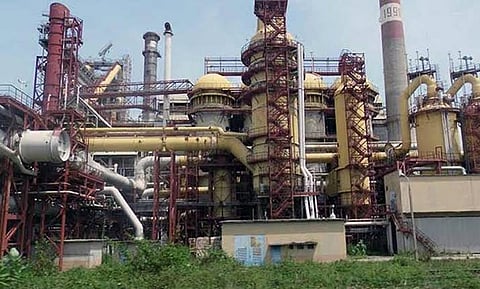

According to reports, the Federal Government has disbursed N38.9 billion to workers of the Ajaokuta Steel Company over the past decade despite the company's failure to thrive since its establishment.
The Ajaokuta Integrated Steel Complex was established in 1979 to create a Metallurgical Process Plant and an Engineering Complex, along with various auxiliary facilities.
According to the company's website, it initially employed around 10,000 workers during the first phase of commissioning, with potential to create approximately 500,000 jobs nationwide.
The Ajaokuta Steel Plant, often referred to as the foundation of Nigeria's industrialization, operates as an Integrated Iron and Steel Plant with four rolling mills: the Billet Mill, Light Section Mill, Wire Rod Mill, and Medium Section and Structural Mill.
The plant uses blast furnace technology, which accounts for about 70% of global liquid steel production. By 1994, equipment installation was reportedly 98% complete, with 40 of the planned 43 units constructed. However, mismanagement has left the project incomplete for over 45 years.
In 2019, former President Muhammadu Buhari and Russian President Vladimir Putin agreed to revitalize the steel mill with support from Russia and funding from Afreximbank but it faced delays due to the COVID-19 pandemic and was abandoned.
In January 2024, President Tinubu began discussions with Luan Steel Holding Group from China to revive the Ajaokuta Steel Company, but these talks have not yet produced results.
Despite the company's inactivity and reports of an ineffective workforce, it continues to receive annual budget allocations from the government, with employee salaries included in the annual budget.
From 2014 to 2024, the company received N29.11 billion in salaries and N9.8 billion in allowances. Personnel costs in 2014 totaled N3.82 billion, slightly decreasing to N3.8 billion in 2015, then further declining to N3.55 billion in 2016 and N3.84 billion in 2017.
D
